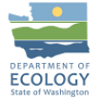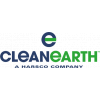The Spill Prevention, Preparedness, and Response Program within the Department of Ecology is looking to fill a Lead Spill Responder (Environmental Specialist 4) position.
This position is located in our Northwest Region Office (NWRO) in. Upon hire, you must live within a commutable distance from the duty station.
Please Note : The salary posted above includes the additional 5% premium pay that this position will receive due to its location in in King County.
In this position, you will respond to spills of oil and hazardous materials, and as a result of our clean-up efforts, you will see immediate benefit to Washington’s residents and environment.
You will also manage complex human health and environmental emergencies through coordination with other federal, state, local, and tribal response partners.
The compelling motivation for this work is public service and the ability to use science to solve environmental and public health challenges.
We are looking for applicants who possess a strong public service ethic, are comfortable working in a leadership role, who excel working in a team environment, thrive working in a dynamic ever-changing work environment, with shifting priorities, and schedule changes, enjoy a mix of field work and office work and are motivated by making a difference protecting human health and
the environment.
Please Note : This position is required to serve as a duty officer for after-hours, on-call pager duty on a regular rotation.
Upon completion of the required training and successful medical surveillance baseline examination, the candidate will be assigned to the Emergency Spill Response Team and will be eligible for a 10% assignment pay .
Likewise, Spill Responders are periodically required to be on call outside of scheduled work hours and are paid an hourly Standby Rate of 7% of the regular hourly rate.
Also, if you work on a response activity outside of your scheduled work hours, you will receive Responder Pay of 150% of your regular hourly pay.
Agency Mission : Ecology's mission is to protect, preserve and enhance the environment for current and future generations.
Program Mission : The Spill Prevention, Preparedness, and Response Program’s mission is to protect preserve, and restore Washington’s environment.
The Spill Program’s vision is to create a zero spills world.
Tele-work options for this position : This position will have flexibility of a hybrid schedule, empowering work from home and office, providing less time in traffic and shrinking your carbon footprint.
Applicants with questions about position location options, tele-work, and flexible or compressed schedules are encouraged to reach out to the contact person listed below in other information.
Schedules are dependent upon position needs and are subject to change. Application Timeline : This position will remain open until filled;
we will review applications on July 25, 2024. In order to be considered, please submit an application on or before July 24, 2024 .
If your application isn't received by this date, it may not be considered. The agency reserves the right to make a Hire any time after the initial screening date.
Ecology employees may be eligible for the following :
About the Department of Ecology
Protecting Washington State's environment for current and future generations is what we do every day at Ecology. We are a culture that is invested in making a difference.
Join a team that is highly effective and collaborative, with leadership that embraces the value of people. To learn more, check out our .
Ecology cares deeply about employee wellness; we go beyond traditional benefits, proudly offering :
- A healthy life / work balance by offering flexible schedules and telework options for most positions.
- An Infants at Work Program that is based on the long-term health values of infant-parent bonding and breastfeeding newborns.
- Continuous growth and development opportunities.
- Opportunities to serve your community and make an impact through meaningful work.
Our commitment to DEIR
Diversity, equity, inclusion, and respect (DEIR) are core values central to Ecology’s work. We strive to be a workplace where we are esteemed for sharing our authentic identities, while advancing our individual professional goals and collaborating to protect, preserve, and enhance the environment for current and future generations.
Diversity : We celebrate and appreciate diversity; our unique perspectives and abilities enrich us all and lead to innovative approaches and solutions.
Equity : We champion equity, recognizing that each of us need different things to thrive. Inclusion : We intentionally create and hold space so that we all have meaningful opportunities to participate and contribute to Ecology’s work.
Respect : We treat each other with respect and dignity, acknowledging the inherent worth of our diverse perspectives and lived experiences, even in times of uncertainty and disagreement.
We believe that DEIR is both a goal and an action. We are on a journey, honoring our shared humanity and taking steps to demonstrate our commitment to a vision where each of us is heard, seen, and valued.
Duties
What makes this role unique?
In this role, you will work with a multi-disciplinary team and use science to solve complex environmental and public health challenges.
Working with other federal, state, local and tribal response partners, you will serve as Ecology’s State On-Scene Coordinator leading the response and cleanup of complex environmental spills.
What you will do :
- Serve as Washington State’s lead representative responding to and cleaning up complex hazardous materials spills.
- Act as a unit expert, training and mentoring others responding to and cleaning-up oil and hazardous materials spills and responding to illegal drug labs.
- Perform hands-on clean-up work, including opening unknown drums / containers, sampling, overpack chemicals, and transports waste.
- Complete case documentation in support of enforcement and cost recovery actions.
Qualifications
Years of required experience indicated below are full-time equivalent years. Full-time equivalent experience means that any experience where working hours were less than 40 hours per week will be prorated in order to meet the equivalency of full-time.
We would calculate this by looking at the total hours worked per week, divide this by 40, and then multiply by the total number of months worked.
Examples of the proration calculations are :
- 30 hours worked per week for 20 months : (30 / 40) x 20 months 15 months full-time equivalent
- 20 hours worked per week for 12 months : (20 / 40) x 12 months 6 months full-time equivalent
Experience for both required and desired qualifications can be gained through various combinations of formal professional employment, education, and volunteer experience.
See below for how you may qualify.
Required Qualifications :
A total of nine years of combined experience and / or education as listed below :
Experience : In any combination of activities such as responding to spills or other emergencies, conducting sampling and analysis studies, working with monitoring instrumentation, managing hazardous waste disposal, performing cleanup or restoration actions, writing scientific or analytical reports, hazardous materials emergency response, or responding to natural disasters.
Education : Involving a major study in environmental, physical, or one of the natural sciences, engineering or other allied field.
All experience and education combinations that meet the requirements for this position :
Possible CombinationsCollege credit hours or degree - as listed above.Years of professional level experience - as listed above.
Combination 1No college credit hours or degree.9 years of experience.Combination 230-59 semester or 45-89 quarter credits.
8 years of experience.Combination 360-89 semester or 90-134 quarter credits (AA degree).7 years of experience.Combination 490-119 semester or 135-179 quarter credits.
6 years of experience.Combination 5 A Bachelor's Degree.5 years of experience.Combination 6 A Master's Degree.3 years of experience.
Combination 7A Ph.D.2 years of experience.
Two years of experience as an Environmental Specialist 3, at the Department of Ecology.
ICS 100, 200, 700 and 800 certification is required in order to be considered. Free on-line ICS training and certification is available at : ICS 100 :
ICS 200 : ICS 700 :
ICS 700 : ICS 800 :
ICS 800 :
Special Requirements / Conditions of Employment :
- Must possess and maintain a valid driver’s license, be able to safely operate a motor vehicle.
- Must pass employment medical surveillance physical and demonstrate the ability to wear respiratory protection and chemical protective clothing.
Must successfully pass physical agilities test.
- Must be able to pass a detailed background check required to obtain and maintain a .
- Must successfully complete initial SAFETRAC requirements and other required training outlined in Spills Program Policy and Procedures within 6 months of entering the position.
- Must be prepared for a minimum 3-day field deployment within 1 hour of notification.
- Must hold and maintain eligibility and certification (valid passport or enhanced driver’s license) to permit travel to Canada in the event of a transboundary spill.
- This position is required to maintain a personal level of fitness necessary to pass a periodic medical surveillance exam, which may include a stress test.
- This position is identified as an Essential Agency Employee and is expected to work during facility closures and natural disasters.
- Must notify supervisor immediately if the employee is unable to obtain any of the above required licenses or certifications, or if any of the above are revoked, expired or suspended for any reason.
- Must live within a 90-minute commuting distance of the Northwest Region Office in Shoreline, WA.
Desired Qualifications :
- Team leadership experience.
- Familiarity with Washington Labor and Industry HAZWOPER safety regulations and experience developing site-specific health and safety plans.
- Experience working in Unified Command with the US Environmental Protection Agency, US Coast Guard, Tribes, and Law Enforcement partners.
- Possess a high level of knowledge using electronic tools and integrating them into emergency responses, such as GPS devices, wireless networks, and data systems.
- Experience collecting waste and environmental samples.
Note : Having some (or all) of this desired experience may make your application more competitive in a highly competitive applicant pool.









